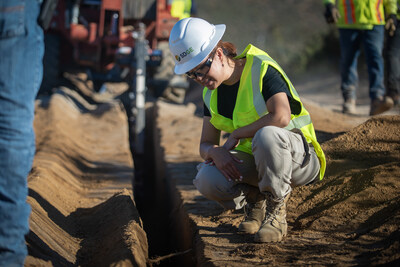
Voters in the Nov. 5 election will be asked to vote on numerous judges now serving as justices of the state Supreme Court, judges at the state Court of Appeals, and District Court and county court judges in Colorado’s 22 judicial districts. (El Paso and Teller counties make up the 4th Judicial District.
) Voters, however, are not asked to elect these judges. Rather, they are asked whether the judges should be retained in office. This is so because Colorado judges are not elected.
They are appointed by the governor from a short list of individuals recommended to the governor by a panel of citizens put in place for that purpose. This system is known as a merit selection system and Colorado’s use of this system puts it in the minority of states. In a majority of states, judges are elected.
Colorado made the decision to switch from electing judges to appointing judges in 1966. Whether appointing judges is better than electing them is still a debated subject. The argument in favor of appointment is that judges are then more independent and can make decisions based on the law, without focusing on reelection.
On the other hand, critics of the current system say it allows a small slice of society to stack the judicial deck, leaving the “will of the people” out of the equation. A common response to that argument is that the judiciary is too important to leave it to the will of the people, since the people wouldn’t have a clue what they are doing. If you want to see the evils of judicial elections portrayed in fiction, read John Grisham’s novel “The Appeal.
” Other countries, with limited exception, don’t elect judges, and world opinion seems generally to be that judicial elections in the U.S. are an act of lunacy right up there with rejection of the metric system.
But returning to Colorado, when a judicial vacancy occurs, a nominating commission goes into action. There is a nominating commission for each of Colorado’s judicial districts that deal with District Court and county court vacancies. There is also a nominating commission for Court of Appeals and Supreme Court vacancies.
These commissions contain a mix of lawyers and non-lawyers, and are designed to be politically balanced. The commissions carefully screen candidates and recommend two or three to the governor, who makes the final selection. New judges serve a probationary term of two years and then stand for “retention” at the next general election.
After that, if retained, they serve for a fixed number of years and again stand for retention. The number of years are: county court judges, four years; District Court judges, six years; Court of Appeals judges, eight years; Supreme Court justices, 10 years. Next, all judges coming up for a retention vote are evaluated by something called a judicial performance commission.
These commissions, which have slightly more non-lawyers than lawyers (the will of the people ...
), observe the judges in action, review their decisions, and conduct surveys of attorneys, parties, witnesses and jurors who have had an experience with the judge being evaluated. The commissions then come up with a recommendation for or against retention, stated as “meets/does not meet performance standards.” It’s rare for there to be a “does not meet performance standards” decision.
One source I found said that, for the 2024 election, only one judge out of 116 undergoing a retention vote received a does not meet performance standards decision. This is a county court judge from Garfield County, Angela Roff. A majority of the members of the judicial performance commission doing her review apparently felt her legal knowledge and administrative performance needed further development.
Judicial performance commission reviews are published in the 2024 State Ballot Information Booklet, aka the “blue book,” sent to registered voters. These reviews are reasonably detailed and make for interesting reading. For example, in its review of one judge from the 4th Judicial District Court, the commission said: the judge “works late and over the weekend to ensure he is meeting his own standards of excellence” and “is widely recognized as being extremely intelligent.
” Voters wanting more information on how the judicial performance evaluation system works should go to the Office of Judicial Performance Evaluation website: https://judicialperformance.colorado.gov .
Finally, voters who don’t trust the procedures by which judges are appointed, retained and evaluated can take comfort knowing that Colorado judges must retire by age 72..













